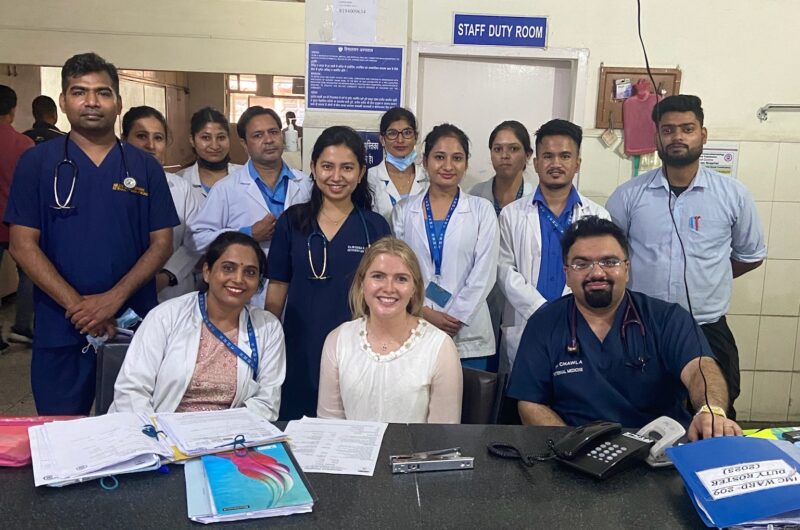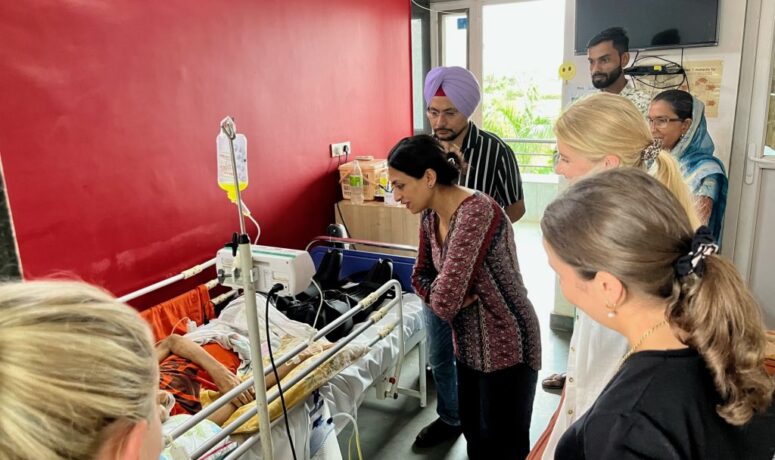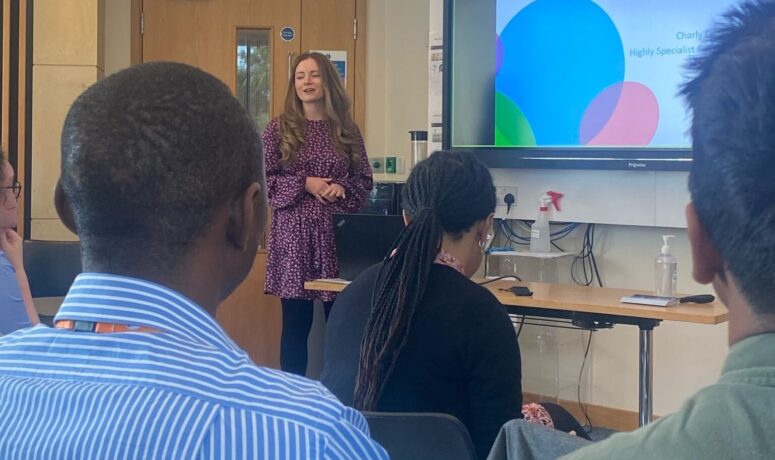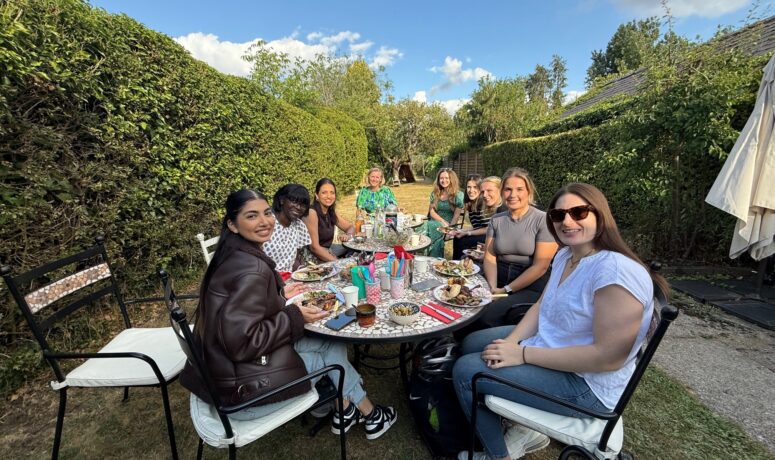Palliative medicine is dedicated to improving care and quality of life for patients and their families facing life-threatening illnesses such as cancer.
Allied Health Professionals (AHPs) play a crucial role in providing holistic and personalised patient care. For example, dietitians evaluate and manage patients’ nutritional needs, develop tailored dietary plans, and advise on how nutrition affects health and recovery. Similarly, physiotherapists assess and address physical restrictions, creating exercise plans and help people improve their physical function and mobility.
In India, nutritional and palliative care, and broader allied health professions are inconsistent and fragmented, despite a huge demand for their services. Although many people train as AHPs, the courses aren’t standardised so the outcomes for professionals vary.
How the project started
Allied Health Professionals from Cambridge University Hospitals (CUH) have partnered with Rama Foundation for over 15 years. Rama Foundation is a UK-registered charity that works with institutions in India to improve the delivery of healthcare and develop palliative care facilities for socially and economically deprived communities. With support from CUH staff, initiatives have included fortifying the diets of school children in Rishikesh with a daily glass of milk and providing food parcels for families of cancer patients from less privileged backgrounds.
What’s happening in the project
Rama Foundation works predominantly with two key partners in northern India: Ganga Prem Hospice (GPH) and the Himalayan Institute of Medical Sciences (HIMS). Ganga Prem Hospice is a 27-bed facility providing critical palliative and spiritual care as well as a homecare team visiting patients in the community. The Himalayan Institute of Medical Sciences (HIMS) is the state’s largest postgraduate teaching institution with 1,200 beds.
Through its collaboration with CUH, Rama Foundation has successfully implemented numerous projects to improve nutritional intake and care, working closely with local partners in education and nutrition. Most recently CGHP supported a multidisciplinary team from CUH to join Rama Foundation and its Indian partners on a project to jointly develop treatment protocols, improve knowledge exchange and share best practice. They supported local clinicians in home visits for palliative patients and delivered talks and training.
The eight-day visit was also essential in allowing the team to demonstrate the huge value that AHPs bring. Working alongside local professionals, they supported the care delivery to around 30 patients, which has kickstarted the process of defining how such a provision can be created locally.
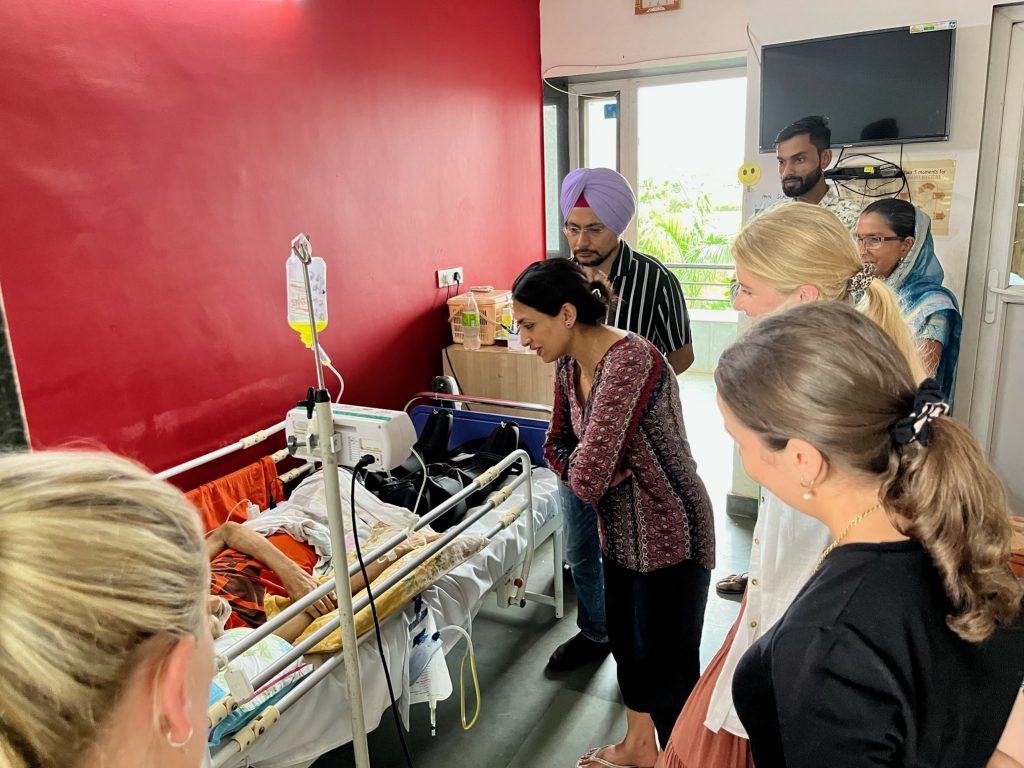
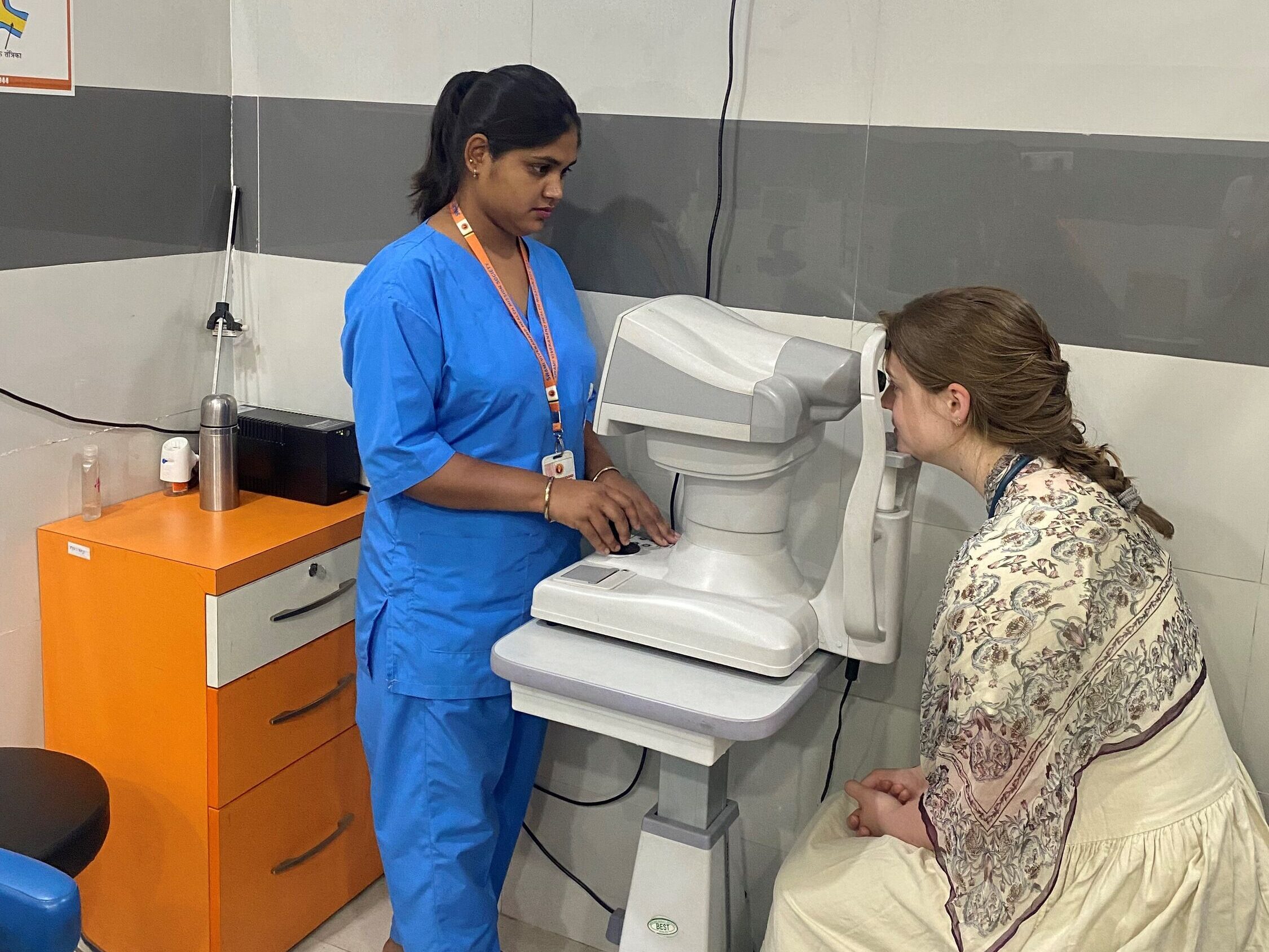
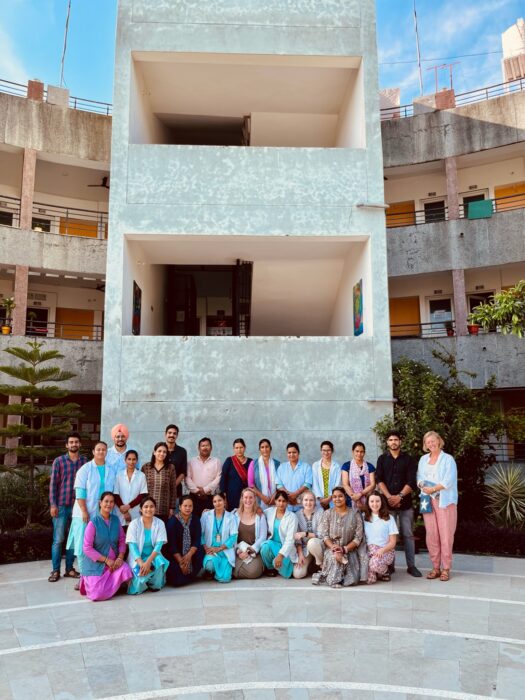
The benefit of bi-directional learning
Like all the health partnerships that CGHP supports, working with Rama Foundation provides valuable opportunity for bi-directional learning that also benefits the UK health system. The most recent activity saw the CUH team build resilience, agility, and the ability to work collectively as part of a multi-disciplinary team.
I am very fortunate and privileged to have had this opportunity and I feel that I have truly grown as a person both personally and professionally. I feel that I have gained confidence in my role as a dietitian and I have further developed my skills including teamwork, communication, public speaking and I certainly feel that I have strengthened my skills of adaptability and flexibility.
Rachael Mullan, Specialist Oncology Dietitian, Cambridge University Hospitals
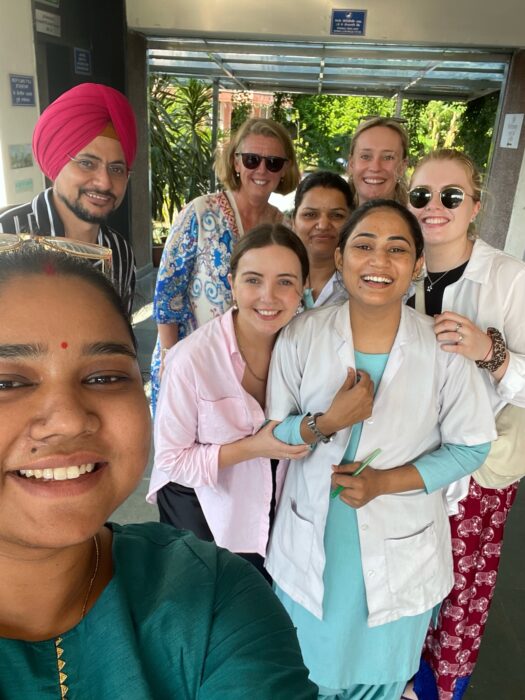
What’s next?
Looking ahead, the partnership hopes to support the HIIMS to develop an increased Allied Health Professional (AHP) workforce function within the Cancer Research Institute and ICU; establish a formal dietetic qualification, and develop specialised programmes for all AHPs.
Working together they plan to create comprehensive treatment protocols and guidance, while continuing to share best practice to improve clinical care and patient outcomes. They are exploring opportunities to expand medical education through electives and exchange visits, and exploring funding opportunities to sustain and grow these initiatives.

